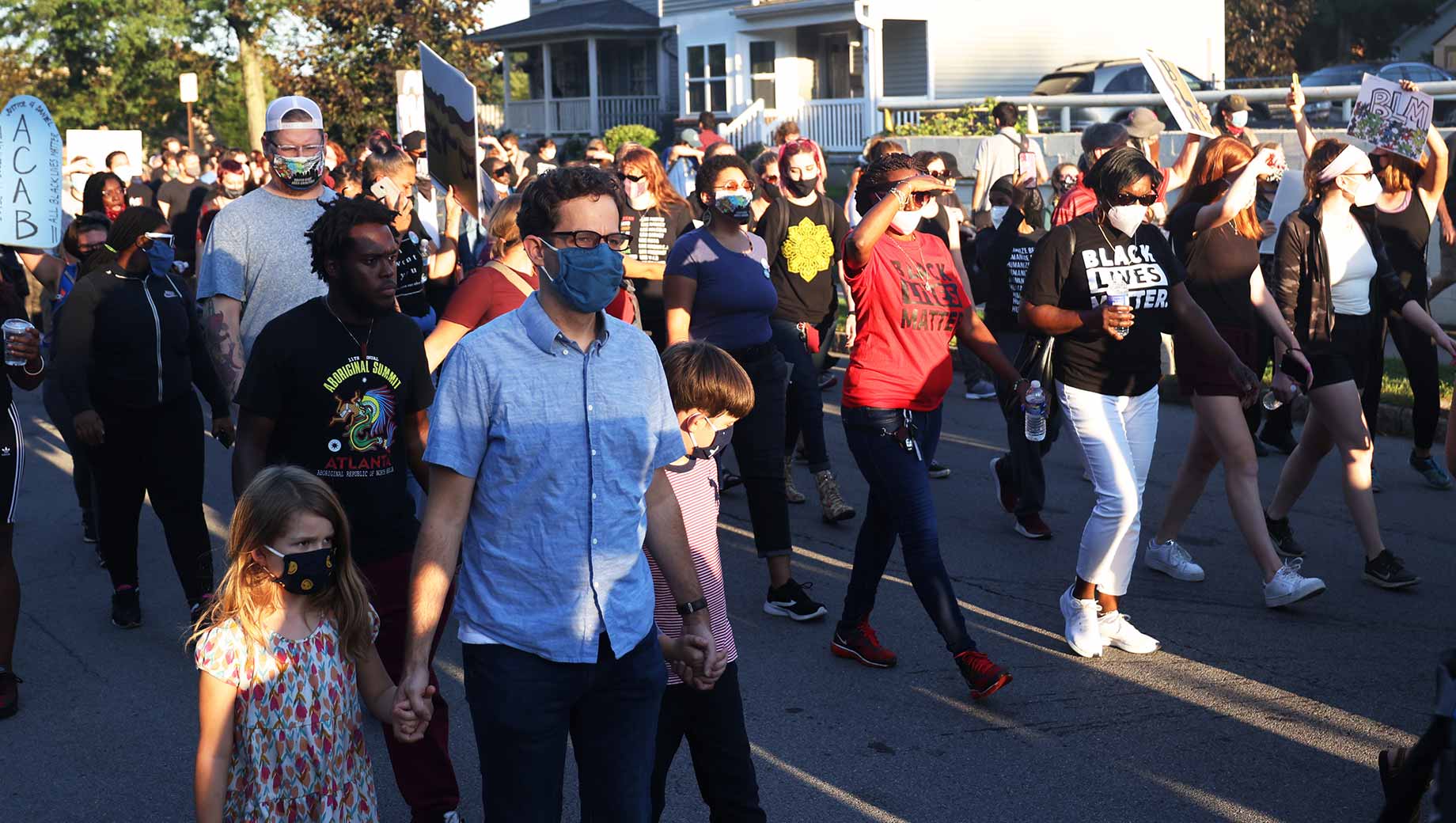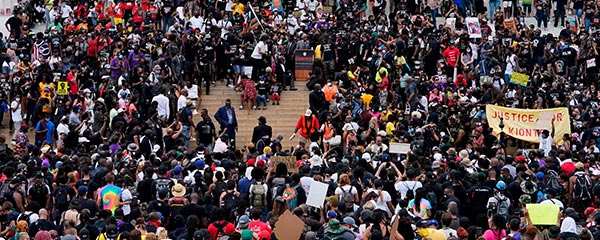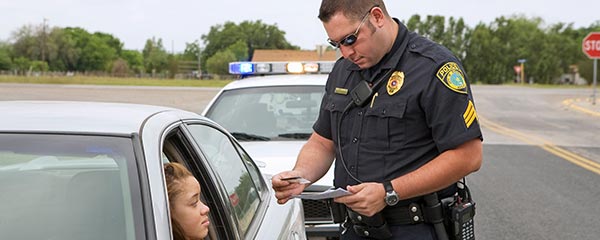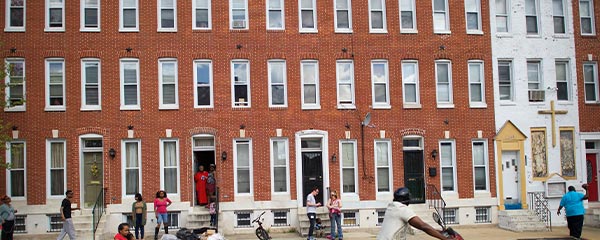We have an ever-growing database of research documenting the inequities between White and Black Americans on a wide variety of outcomes, including the extensive analyses of survey data available on Gallup's Center on Black Voices. This documentation raises a key question: What do public opinion data show about strategies for changing the situation?
A majority of Americans agree with the underlying conclusion that racial inequities in U.S. society need to be addressed. Gallup has just reported that for the first time in over a quarter century of asking the question, a majority of Americans say that new civil rights laws are needed to reduce discrimination against Black Americans. A new low of 35% of Americans say they are satisfied with the way Black people are treated in the U.S. A CNN poll shows that 84% say racism is a problem in our society.
But we find much less agreement with a number of the specific proposed remedies that would produce the most significant changes in the situation, those that have been called "big ideas" to address racial inequality. This leaves a challenge for social and political leaders -- translating the widely existing attitudinal sentiment about the need for change in the nation's racial structure into support for specific programs that have the highest probability of actually bringing about real change.
Americans Favor Police Reform, but Not Dramatic Restructuring
One example comes from the major focus on police violence against Black Americans in local communities. Black Americans' skepticism of the police has been well-documented, and Gallup recently reported that only 19% of Black Americans have confidence in the police (compared with 56% of White Americans). Gallup's data show that 58% of Americans say "major" reforms in policing in the U.S. are necessary, with another 36% saying minor reforms are necessary. A poll from The Associated Press-NORC Center for Public Affairs Research recently showed that 95% of Americans "believe that police reform -- in some capacity -- is necessary."
Many reform proposals have been floated, and as is often the case, support varies widely when it gets to specifics. But the proposal that would jolt the system and most likely bring about the most significant systemic change, changes to police funding, is at the bottom of the list in terms of public approval.
My Gallup colleague Steve Crabtree effectively summarized data on police reforms in his recent review article. There is broad support for such things as requiring officers to have good relations with the community, changing management practices so officer abuses are punished and so officers with multiple incidents of abuse of power are not allowed to serve, and promoting community-based alternatives such as violence intervention. There is mixed support for ending "stop and frisk," eliminating police unions and eliminating officer enforcement of nonviolent crimes.
But, and I think this is key, there is less support for the idea of significant changes to police department funding. Only 15% of Americans in Gallup's recent polling support the idea of abolishing police departments, while a higher but still less-than-majority percentage (47%) support reducing police department funding and shifting the money to social programs. A Quinnipiac poll similarly found that 14% of Americans support eliminating the current police department in their community and replacing it with a new one, while a higher number -- but still less than a majority (41%) -- favor the idea of cutting some funding for police departments. Activists argue that such shifts in funding are required to provide the dramatic wakeup call necessary to bring about significant changes in policing practices, but the majority of Americans apparently don't agree.
Yes to Education Equality, but Hesitation on Busing
One of the resounding themes of the focus on racial inequities is economic disparity, and one of the enduring focal points on reducing economic inequality has been equalizing educational opportunities -- an issue that took on particular importance after the 1954 Brown v. Board of Education of Topeka ruling that separate but equal schools were unacceptable.
There is an enormous history of public opinion in this area, with Gallup, for example, asking about integration and busing as far back as the 1950s. The complexities come into play because most schools are local, and residential living patterns are largely segregated. This means that unless and until there is widespread residential desegregation, efforts to provide truly integrated schools mostly focus on the largescale movement of children to distant schools -- i.e., busing. (Interestingly, this topic was in the news last year when in a Democratic debate now vice presidential nominee Kamala Harris accused her now presidential running mate Joe Biden of not supporting busing earlier in his career.)
Here again, Americans in principle support the concept of equalizing educational opportunities and integration of schools, but balk when it comes to remedies involving busing students between school districts. A Gallup survey in July 2019 found a 57% majority of Americans saying that racial concentration or segregation in U.S. public schools is a very or moderately serious problem, and 53% believing that the federal government should take additional steps to reduce racial concentration or segregation in schools. And while majorities of respondents favored creating more regional magnet schools (79%), promoting more low-income housing in suburbs and other higher-income areas (66%) and redrawing boundaries to create more racially diverse school districts (60%), less than half supported the idea of busing a certain percentage of students to neighboring school districts (43%).
Affirmative Action, Reparations and Confederate Statues
The issue of economic disparities in the workplace leads to consideration of affirmative action -- the concept that positive action needs to be taken to redress the effects of prior racial discrimination. As I reviewed recently, Americans approve of the concept of affirmative action in principle, but not necessarily some of the more specific ways in which it can be operationalized. As I concluded in that piece, "when it comes to policies that explicitly take race into account in making hiring and promotion decisions in order to remedy past discrimination and overcome implicit bias, the public demurs."
We also have the concept of reparations, the idea of recompensing Black Americans for slavery and the 150 years of discrimination and marginalization that followed after slavery was officially outlawed in 1865. Americans recognize that slavery has had and continues to have a negative legacy for Black Americans. A Washington Post poll last year showed that two-thirds of Americans said the legacy of slavery affects American society today "a great deal" or "a fair amount." A Pew research poll similarly found 63% of Americans believing that the legacy of slavery affects the position of Black people in society today.
Despite this recognition, there is a much lower level of support for the concept of reparations -- the major response to slavery now being considered by the U.S. Congress and studied by Democratic presidential nominee Joe Biden.
A Gallup poll conducted in 2019 showed that a distinct minority of 29% of Americans approved of the idea of reparations (defined as "cash payments to Black Americans who are descendants of slaves"). An AP-NORC poll in 2019 found exactly the same results: 29% supported the U.S. federal government paying "reparations for slavery and racial discrimination in this country by making cash payments to the descendants of enslaved people." And a Reuters/Ipsos poll conducted this year shows 20% support using "taxpayer money to pay damages to descendants of enslaved people in the United States."
One additional response to the renewed focus on the impact of slavery on American society is the decision to pull down statues and memorials to Confederate leaders and military officers. The historical background and reasoning for the existence of these memorials to the Confederacy is complex, and public opinion on the concept is mixed. A recent NBC News/Wall Street Journal poll found 51% saying they should be removed, versus 47% saying they should be left in place. And a June Quinnipiac poll found very similar results, with a bare majority of 52% supporting the statues' removal.
Going Forward
The first civil rights bill in the U.S. was signed into law in 1866, and it has been 56 years since the landmark passage of the Civil Rights Act of 1964. Yet race relations remains a fundamental problem for the nation, and a majority of Americans agree that racial inequities need to be fixed.
The challenge for leaders and policymakers lies in generating support for specific policies that have the highest probability of creating meaningful and lasting change. These efforts to change the status quo mean disruption, and disruption caused by efforts to fix problems in one area creates anxiety and worry about unforeseen consequences and side effects in other areas. Plus, Americans may have serious questions about how well disruptive remedies are going to work in the long run.
Leaders who want to bring about lasting change for the racial situation in the U.S. are thus going to have to first understand the reasons behind the public's reluctance (as measured in surveys) to support disruptive policy changes, and then work to show why disruptions of current structures and practices are necessary and important for the nation's overall health and solidarity going forward. Or, alternatively, leaders are going to have to develop and defend new solutions that can bring about the same results.




